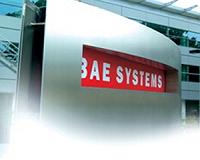| . |  |
. |
Tel Aviv, Israel (UPI) Jun 18, 2010 Turkey is reported to have frozen at least 16 arms deals with Israel worth an estimated $56 billion, including missile projects and upgrading combat aircraft and tanks, in a major escalation of its confrontation with the Jewish state. The Turkish newspaper Today's Zaman reported Friday that the contracts were suspended after the Israeli government refused to apologize for the May 31 killing of nine Turks when Israeli naval commandos stormed the Mavi Marmara, a Turkish-flagged vessel carrying humanitarian aid to the blockaded Gaza Strip. There was no official confirmation of the report in either Israel or Turkey. But relations between the two former allies have been crumbling since Turkey's Islamist prime minister, Recep Tayyip Erdogan, ferociously denounced Israel's invasion of the Hamas-ruled Gaza Strip Dec. 27, 2008. The Israeli daily Haaretz quoted defense ministry sources as saying it was probably just a matter of time before Ankara officially froze all defense deals with Israel. On Monday, state-run Israel Aerospace Industries, flagship of the Jewish state's defense industry, and Elbit Systems ordered all their engineers, flight instructors and other employees based in Turkey to return home. Haaretz said the 16 projects being frozen include a $5 billion contract for 1,000 Merkava Mark III main battle tanks designed by Israel Military Industries -- the Israeli army is equipping with Merkava Mark IV models -- a $50 million upgrade of Turkey's M-60 tanks, an $800 million deal for two Israeli patrol aircraft and an Airborne Warning and Control System jet. Turkey was also planning a $625.5 million deal for 54 McDonnell Douglas F-4E Phantom strike aircraft to be upgraded to Phantom 2020 standard, and a $75 million program to upgrade 48 of the air force's 87 Northrop F-5/F-5B fighter-bombers as lead-in trainers. Relations nosedived in October 2009 when Turkey canceled Israel's participation in NATO air exercises. Turkey complained that IAI had delayed delivery of six of 10 Heron long-range unmanned aerial vehicles ordered by the Turkish military in a $185 million 2005 contract. Last April, Jane's Defense Weekly reported that the Israel defense ministry froze the sale of advanced military platforms to Turkey because of mounting anti-Israeli rhetoric from Erdogan's government. The ministry's foreign defense assistance and export procurement department also decided to review all Turkish requests for military equipment on a case-by-case basis. Turkey has been a major importer of Israeli military hardware and defense expertise since the two countries signed a military cooperation pact in 1996. That landmark alliance between the two major non-Arab military powers in the Middle East dramatically changed the region's strategic landscape. Israeli pilots trained in Turkey and, according to some reports, Israel set up intelligence-gathering stations on Turkey's borders with Syria and Iran. In the past, the Turks had preserved military cooperation with Israel, particularly the arms deals and joint exercises that formed the core of their strategic alliance, even when treatment of the Palestinians stirred widespread anger among Turkey's overwhelmingly Muslim population. But the May 31 killings, and Israel's dogged refusal to acknowledge responsibility for the bloodletting, has incensed the Turkish nation. The Financial Times quoted Namik Tan, Turkey's ambassador to the United States, as saying Ankara could be forced to sever all ties with Israel, although he stressed: "We don't want this to go to that point." The unraveling of military links, including intelligence-sharing that Israeli leaders valued extremely highly because of Turkey's proximity to Iran, underlined the seriousness of the current confrontation. Turkish Foreign Minister Ahmet Davutoglu has said he does not trust Israel to carry out an impartial review of the May 31 incident, rather than be subjected to an international investigation. Turkish President Abdullah Gul has warned that Ankara would not rule out breaking off diplomatic ties if three demands -- an international probe, a public Israeli apology and lifting the three-year-old blockade on Gaza -- are not met. "If the United States cannot be relied upon to pressure Israel on meeting these demands, Ankara will have to find some lever to do so itself," the U.S.-based global security consultancy Stratfor observed in an analysis Tuesday. "One such lever may be military and intelligence cooperation, which Israel has historically relied upon. Turkey has already downgraded cooperation and rumors have surfaced that Israeli intelligence operatives may be expelled from a radar post on Turkish soil near the border with Iran."
Share This Article With Planet Earth
Related Links The Military Industrial Complex at SpaceWar.com Learn about the Superpowers of the 21st Century at SpaceWar.com
 BAE Systems to appeal U.S. bribery ruling
BAE Systems to appeal U.S. bribery rulingLondon (UPI) Jun 17, 2010 BAE Systems, Britain's largest defense company, said it will appeal a U.S. court ruling in connection with bribery allegations. The ruling would extend the term of an independent compliance monitor the company must hire as part of a large settlement deal struck with the U.S. Justice Department after the bribery allegations surfaced. The settlement included the provision that BAE Systems ... read more |
|
| The content herein, unless otherwise known to be public domain, are Copyright 1995-2010 - SpaceDaily. AFP and UPI Wire Stories are copyright Agence France-Presse and United Press International. ESA Portal Reports are copyright European Space Agency. All NASA sourced material is public domain. Additional copyrights may apply in whole or part to other bona fide parties. Advertising does not imply endorsement,agreement or approval of any opinions, statements or information provided by SpaceDaily on any Web page published or hosted by SpaceDaily. Privacy Statement |